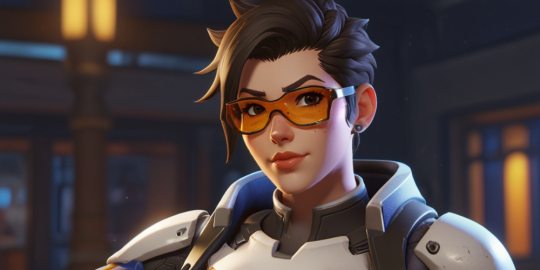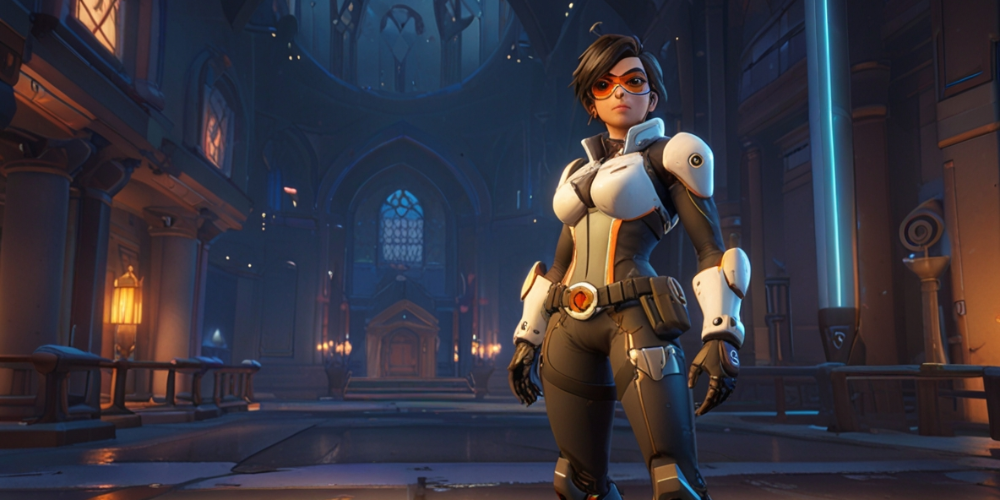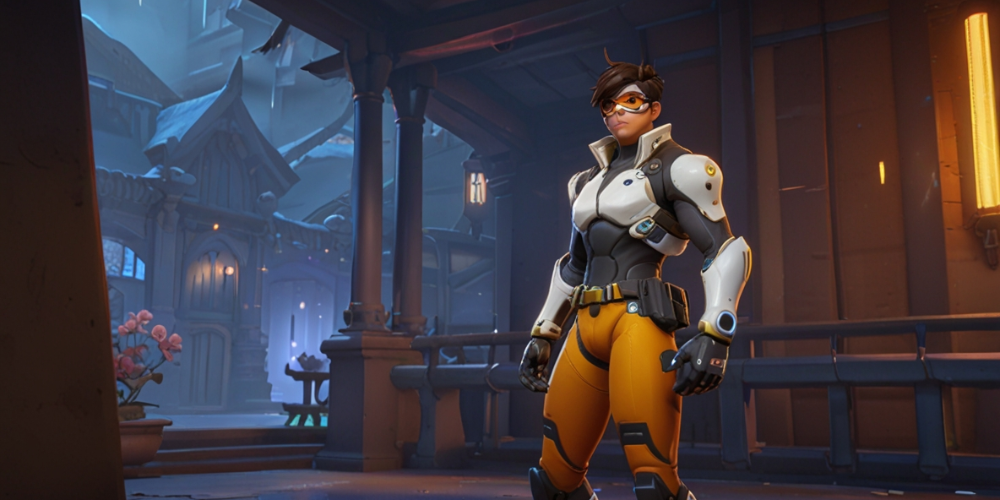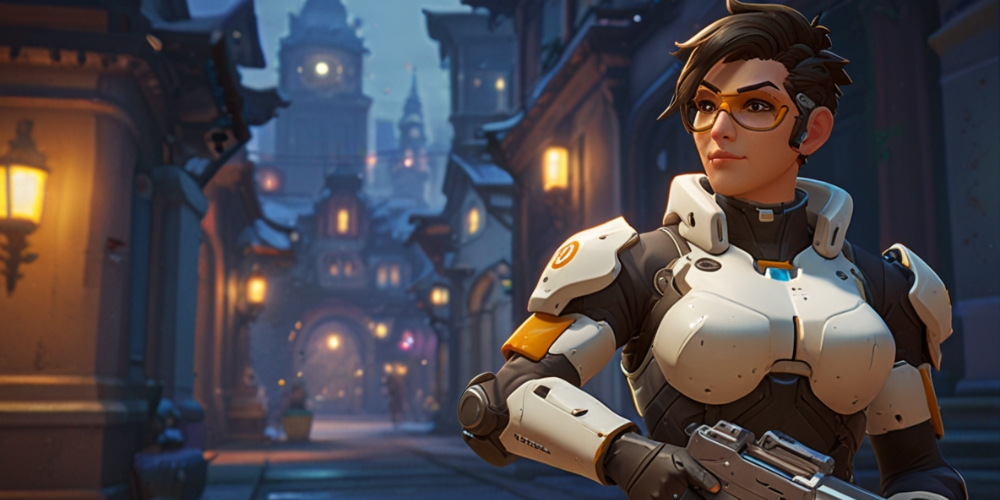
As a passionate gamer and an advocate for inclusivity, I have always been intrigued by how diverse representation shapes our gaming experience. Overwatch, a popular team-based shooter first-person by Blizzard Entertainment, stands out in this regard. With its diverse roster of characters drawn from various cultures, backgrounds, and identities, it became a monumental representation of diversity in gaming upon its release in 2016. What truly fascinates me is how Overwatch tackles conversations around diversity and representation, opening the door for reflection on societal issues within a virtual landscape.
Character Diversity: A Kaleidoscope of Identities
Starting with the characters themselves, Overwatch's design philosophy revolves around creating heroes that resonate with players from different walks of life. Through characters such as Tracer, a British pilot, and Genji, a cyborg ninja of Japanese descent, the game introduces a colorful cast that reflects global cultures. Each character is not just a collection of gameplay abilities but embodies rich narratives that draw from their heritage and experiences. This level of thoughtfulness sparks discussions about how representation in media can influence perceptions of diverse communities.
Breaking Stereotypes with Strong Female Characters
One of the standout features of Overwatch is its commitment to showcasing strong female characters who defy typical gaming stereotypes. Characters like Pharah, who serves as a military officer, and Mei, a scientist with a caring demeanor, challenge the notion that female representations are limited to supporting roles or sexualized designs. Instead, Overwatch portrays these women as capable, intelligent, and multifaceted individuals, providing young gamers with strong role models and encouraging a more nuanced understanding of gender roles in gaming.
Representation of LGBTQ+ Characters
The inclusion of LGBTQ+ characters is another landmark achievement for Overwatch. The game made headlines with the reveal of characters like Tracer being a lesbian. By featuring diverse sexual orientations, Overwatch creates an environment where LGBTQ+ players can see themselves represented positively. This conscious representation encourages conversations about visibility in gaming, allowing players from all backgrounds to connect with characters that reflect their identity.

Cultural Nuances in Character Design
Overwatch has taken conscious steps to incorporate cultural nuances into its character designs. For instance, the character Doomfist hails from Nigeria and embodies elements of African culture, while Sombra brings elements of Mexican heritage to the forefront. Such representation is significant because it promotes appreciation for various cultures while educating players about their uniqueness. It is evident that the developers have invested time and effort into researching and respecting the cultures they depict, which I find commendable.
The Role of Intersectionality
The concept of intersectionality plays a critical role in the conversations surrounding diversity in Overwatch. Characters like Zarya, a Russian bodybuilder, highlight how identity can encompass multiple dimensions. She breaks the mold of typical female hero representations and addresses societal pressures related to body image and self-acceptance. By presenting complex characters that navigate various aspects of their identity, Overwatch reinforces the idea that diversity isn't merely about ethnicity or gender; it encompasses a myriad of experiences and backgrounds.
Community and Player Engagement
What struck me the most is how the Overwatch community has engaged with its diverse cast of characters. Players often express personal connections to characters with whom they share backgrounds, whether cultural, gender-based or through shared life experiences. This intertwining of character narratives with player stories fosters a sense of belonging, making the gaming experience more enriching. I’ve seen players celebrate their identities through cosplay, fan art, and literature, creating a vibrant community that resonates with the game’s themes of unity and teamwork.

Challenges and Criticism: The Road Ahead
No discussion about diversity would be complete without recognizing the challenges and criticisms that Overwatch has faced. While the game has made strides in representation, it still bears the responsibility of continuously evolving and addressing the nuances of the communities it represents. There have been discussions about certain characters perpetuating stereotypes, and the need for ongoing sensitivity and awareness is paramount. Acknowledging these critiques is essential for fostering constructive dialogue within the gaming community.
The Importance of Narrative in Overwatch
Overwatch’s storytelling transcends gameplay mechanics, as it offers immersive narratives that give context to its characters. Through animated shorts, graphic novels, and cinematic trailers, the developers flesh out the backstories and struggles of the heroes, ensuring that we see not just the characters, but the challenges they face in their worlds. This storytelling methodology helps build empathy among players, encouraging us to engage with diverse narratives that challenge our understanding of identity and experience.
Global Impact and Audience Reaction
The global audience response to Overwatch has underscored the significance of diversity in gaming. Players from various countries have expressed their appreciation for characters that reflect their cultural backgrounds. The game's international appeal demonstrates how representation can enable players to find common ground, even amidst differing cultural contexts. It reinforces the notion that gaming can become a conduit for cross-cultural understanding and dialogue.
The Role of Inclusivity in Game Development
Inclusivity in game development is paramount as it influences the creation of characters and narratives. Blizzard’s commitment to diversity is commendable, but it also prompts other developers to reflect on their practices. As someone invested in the industry, I believe that demanding diverse voices within creative teams and enhancing representation is essential for producing authentic and relatable game content. The richer the perspectives in the development process, the more dynamic and diverse the end product can be.

Diversity Beyond Character Representation
Diversity in gaming should not be confined to character representation alone. It extends to narratives, gameplay mechanics, and even marketing strategies. Overwatch embodies diversity in its gameplay by requiring players to work as a cohesive unit, regardless of their chosen characters. This collective approach not only fosters teamwork but also echoes the message that everyone has a role to play, regardless of their background. It’s a refreshing take on the importance of collaboration and empathy in a competitive gaming landscape.
Player Reactions and the Push for Change
The reaction from players and fans can drive significant change in the gaming industry. The supportive outcry to champion for better representation within Overwatch and other games illuminates how players are increasingly vocal about their demands for inclusivity. It is invigorating to witness how grassroots movements within the gaming community can affect tangible results, encouraging developers to listen and adapt to their audience's calls for change.
Future Directions for Overwatch and Gaming at Large
Looking ahead, I’m eager to see how Overwatch will continue to evolve in representation. It challenges other gaming studios to reflect on their character designs, narratives, and player engagement strategies. As we progress in an era where diverse representation is valued more than ever, it’s important that developers not only commit to inclusivity but also ensure it is reflected in their work. Embracing this change will enhance the gaming experience for all players, and I remain hopeful for a future where diversity becomes the norm rather than the exception.
Personal Reflection on Gaming and Representation
As I reflect on my gaming journey, I recognize how important it is for representation to be part of every gamer’s experience. Overwatch has played a pivotal role in expanding my understanding of diversity within gaming, and it has opened my eyes to the stories worth telling. Gaming can be a powerful medium for change and understanding, and it’s crucial for players, developers, and communities to continue advocating for inclusivity and representation across the industry.